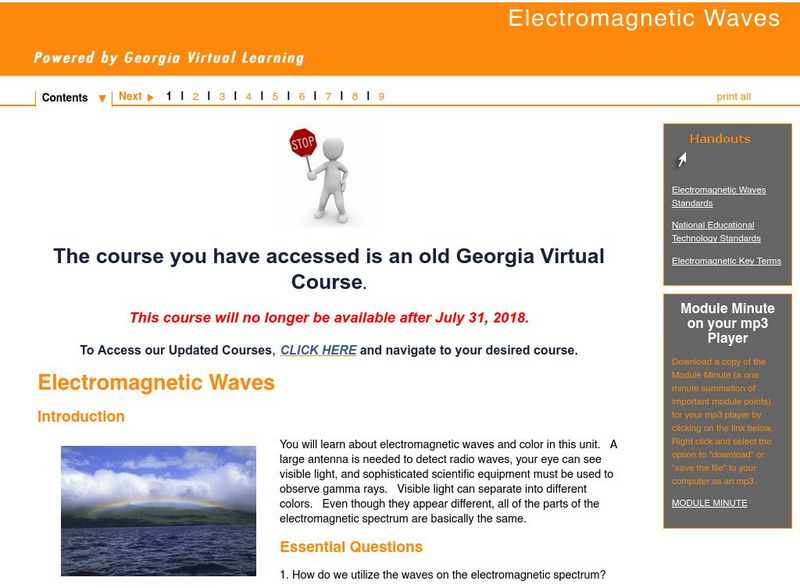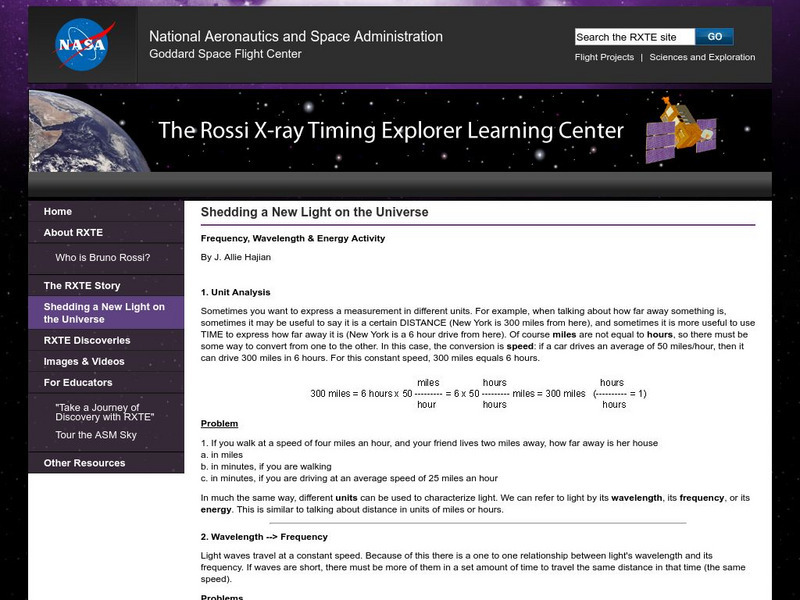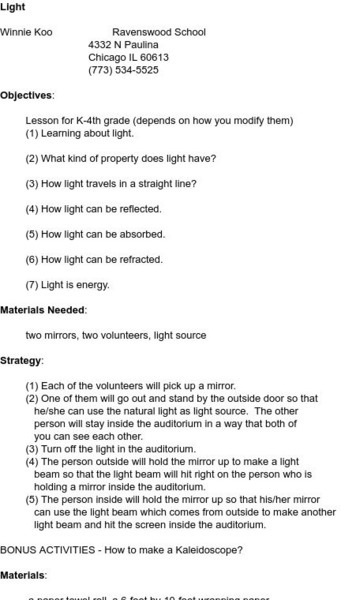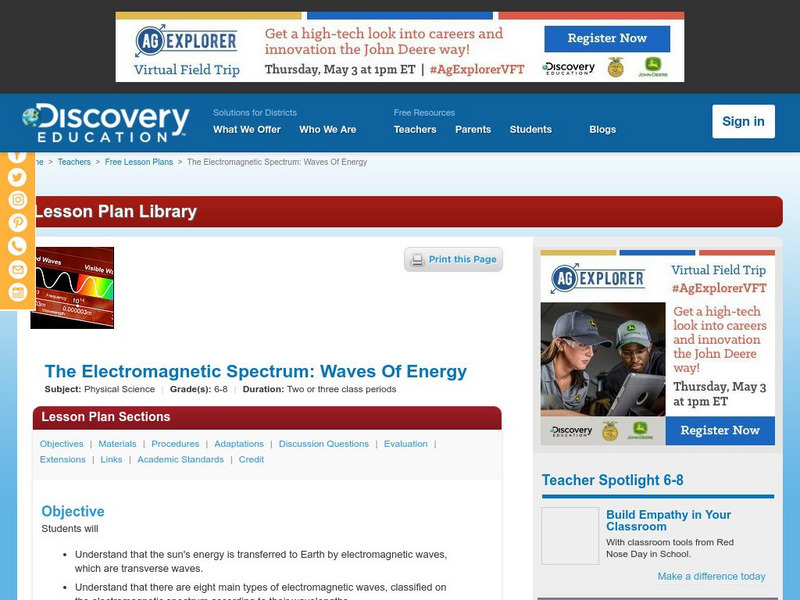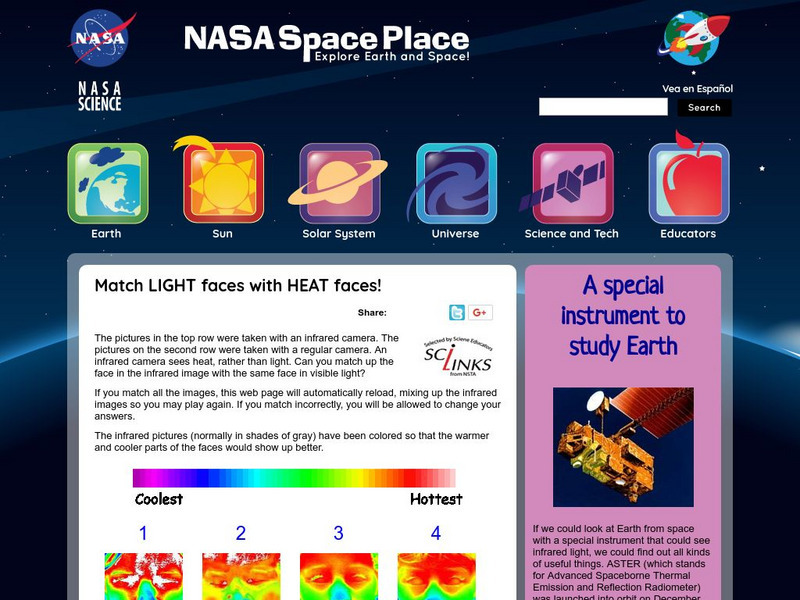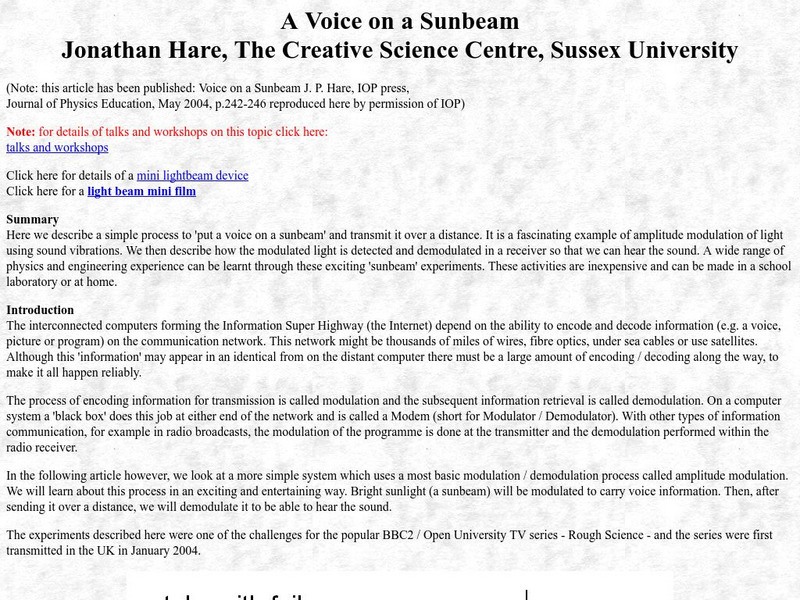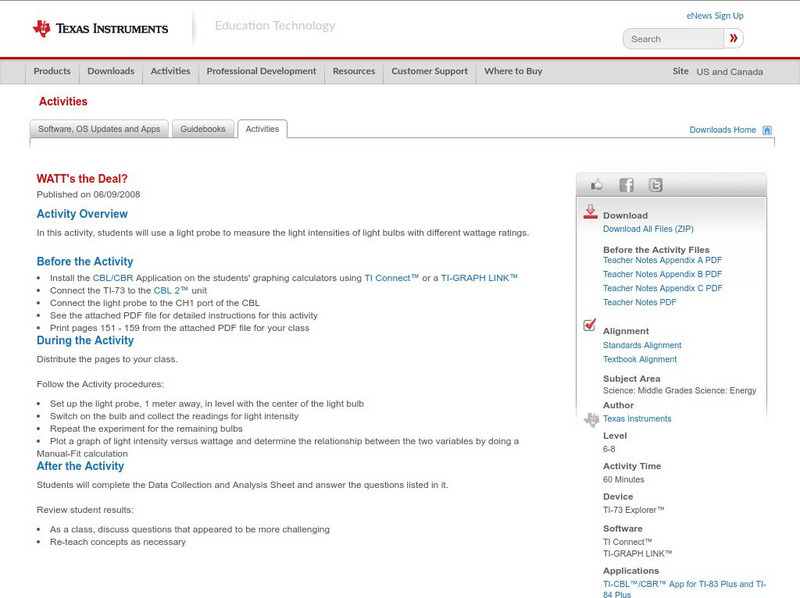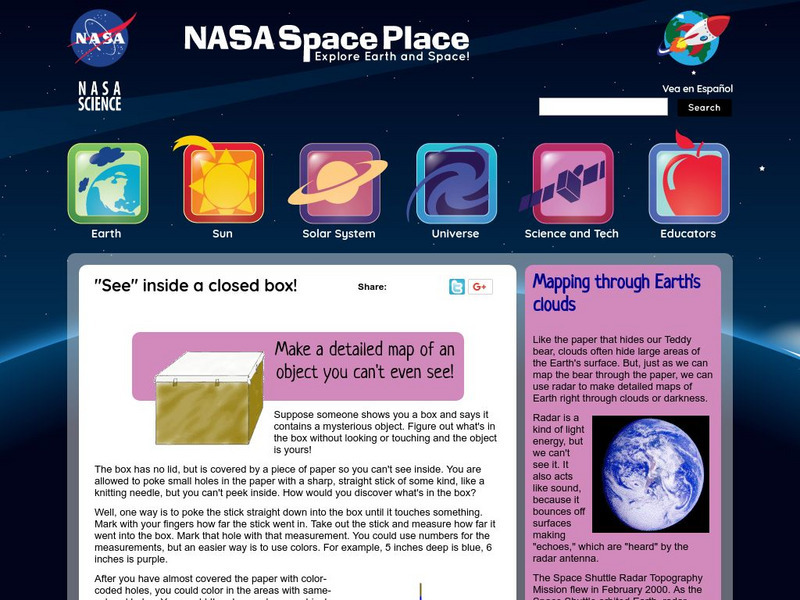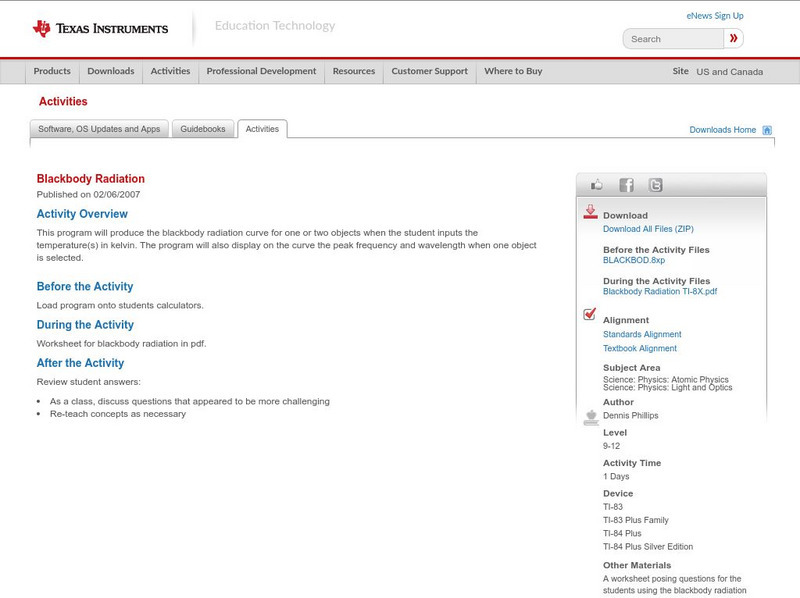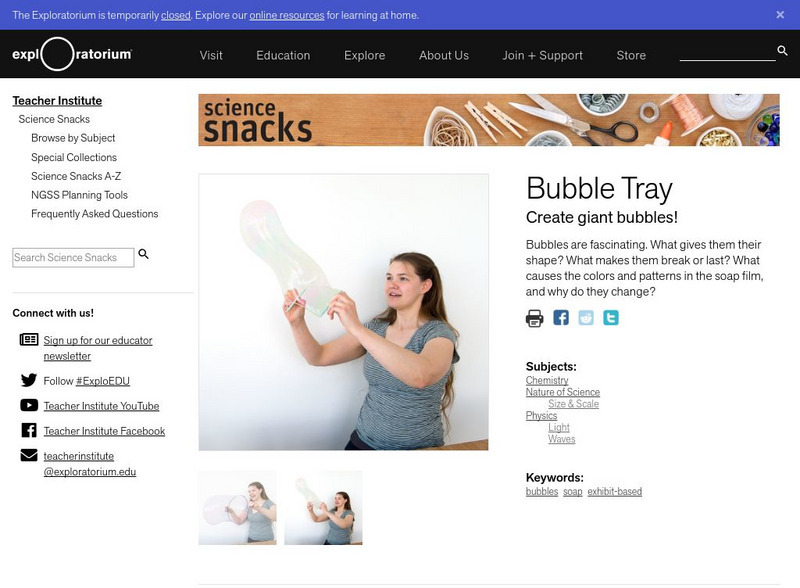TeachEngineering
Teach Engineering: Stations of Light
Student groups rotate through four stations to examine light energy behavior: refraction, magnification, prisms and polarization. They see how a beam of light is refracted (bent) through various transparent mediums. While learning how a...
TeachEngineering
Teach Engineering: Waves: The Three Color Mystery
Students are presented with a challenge question concerning color blindness and asked to use engineering principles to design devices to help people who are color blind. Using the legacy cycle as a model, this unit is comprised of five...
Georgia Department of Education
Ga Virtual Learning: Electromagnetic Waves
Through informational text, interactive activities, practice problems, and virtual simulations, students explore the properties of electromagnetic waves.
NASA
Rxte Learning Center: Frequency, Wave Length, and Energy Activity
Resource focuses on the relationship between the frequency, wavelength and speed of light. Has a link to an interactive activity relating frequency, wavelength, and energy.
Science and Mathematics Initiative for Learning Enhancement (SMILE)
Smile: Light (K 4)
This site provides two activities that students can do in class. One uses mirrors to reflect light beams whole another is making a kaleidescope.
Science and Mathematics Initiative for Learning Enhancement (SMILE)
Smile: Light and Vision
Lesson plan should be used for intermediate students. Students work in pairs or groups to create a shoe box that will bend light.
Science and Mathematics Initiative for Learning Enhancement (SMILE)
Smile: Light (Intermediate)
Lesson plan for various group activities about light. Provides demonstration and directions for the plans along with assessment.
TeachEngineering
Teach Engineering: Waves Go Public!
Students apply everything they have learned over the course of the associated lessons about waves, light properties, the electromagnetic spectrum, and the structure of the eye, by designing devices that can aid color blind people in...
Discovery Education
Discovery Education: The Em Spectrum: Waves of Energy
Students are introduced to the electromagnetic spectrum through this group research activity. Each group investigates a different wavelength range within the em spectrum and reports back to class. Discussion ideas also included.
NASA
Nasa: The Space Place: Match Light Faces With Heat Faces
This site from the National Aeronautics and Space Administration provides information on the subject. "An infrared camera sees heat, rather than light. Can you match up the face in the infrared image with the same face in visible light?"
Creative Science Centre
Creative Science Centre: A Voice on a Sunbeam
Here is described a simple process to 'put a voice on a sunbeam' and transmit it over a distance. It is a fascinating example of amplitude modulation of light using sound vibrations. It then describes how the modulated light is detected...
TeachEngineering
Teach Engineering: The Energy of Light
In this introduction to light energy, students learn about reflection and refraction as they learn that light travels in wave form. Through hands-on activities, they see how prisms, magnifying glasses and polarized lenses work. They also...
Texas Instruments
Texas Instruments: Watt's the Deal?
In this activity, students can use a light probe to measure the light intensities of light bulbs with different wattage ratings.
Texas Instruments
Texas Instruments: Comparing Sunscreens
In this activity, students use the UVB Sensor to measure the amount of UVB light that passes through a thin film of sunscreen. They analyze the relationship between the SPF values and the intensity of UVB light transmitted by the sunscreen.
Space Telescope Science Institute
Amazing Space: Star Light Star Bright
Learn all about stars and the electromagnetic spectrum in this series of activities.
TeachEngineering
Teach Engineering: Beating the Motion Sensor
Lighting is responsible for nearly one-third of the electricity use in buildings. One of the best ways to conserve energy is to make sure the lights are turned off when no one is in a room. This process can be automated using motion...
Exploratorium
Exploratorium: Science Snacks: Moire Patterns
In this activity, students will use Moire patterns to demonstrate wave interference.
NASA
Nasa: Probing Earth Through the Clouds
This site from the National Aeornautics and Space Administration provides a fun activity for the subject. "Clouds often hide large areas of the Earth's surface. We can use radar to make detailed maps of Earth right through clouds or...
Utah State Office of Education
Utah State Office of Education: Force, Energy, & Motion
A unit on energy, force, and motion presented with interactive and classroom activities. Students gain an understanding of weight, mass, potential and kinetic energy, sound, and heat with this engaging resource.
TeachEngineering
Teach Engineering: The Visual Spectrum
In this activity, students make simple spectroscopes (prisms) to look at different light sources. The spectroscopes allow students to see differing spectral distributions of different light sources.
PBS
Pbs: Rough Science
Website companion to PBS show, "Rough Science," in which five scientists use their collective expertise to complete a series of tasks. Follow the scientists as they do things like generate electricity, make soap, make antibacterial...
Texas Instruments
Texas Instruments: Blackbody Radiation
This program will produce the blackbody radiation curve for one or two objects when the student inputs the temperature(s) in kelvin. The program will also display on the curve the peak frequency and wavelength when one object is selected.
Exploratorium
Exploratorium: Science Snacks: On the Fringe
This activity will have students exploring interference patterns by observing air trapped between two pieces of clear plastic.
Exploratorium
Exploratorium: Science Snacks: Bubble Tray
This activity allows students to create and observe giant bubbles.




